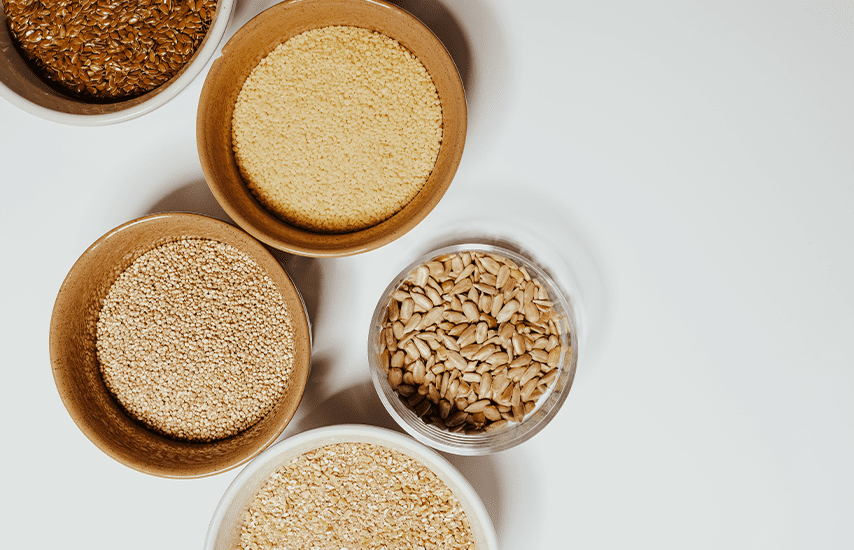Gut Health on the Go: Protecting Your Digestive Wellness While Traveling

Traveling can be an exciting adventure, but it often disrupts our regular routines, including those that keep our digestive system in check. This guide is dedicated to helping you maintain optimal gut health while you’re exploring new places.
From understanding the benefits of probiotics to making smart food choices, we’ll provide practical tips to prevent common travel-related digestive issues like constipation and diarrhea. Whether you’re jet-setting or embarking on a road trip, these insights will help you enjoy your travels without the discomfort of a travel tummy.
How Can Probiotics Help?

When it comes to maintaining gut health while traveling, probiotics are a traveler’s best friend. These beneficial bacteria play a crucial role in supporting healthy digestion and bowel movements, helping to prevent issues like traveler’s diarrhea and constipation.
Probiotics work by bolstering the gut microbiome, the community of microorganisms in our digestive tract, which can be thrown off balance by travel stress, changes in diet, and exposure to new environments.
Including a probiotic supplement like Bioma in your travel kit can be a game-changer. Bioma’s specific probiotic strains are selected for their effectiveness in maintaining digestive health and gut balance, even in the face of travel-related disruptions. Regular intake of Bioma can help keep your gut microbiome robust, reducing the likelihood of digestive discomfort and enhancing your body’s ability to adapt to new eating choices and foods.
But Bioma isn’t just about preventing discomfort; it’s about enhancing your overall travel experience. By supporting your gut health, Bioma can help you feel your best, ensuring that abdominal pain or bloating doesn’t get in the way of your adventures. This way, you can focus on enjoying your travels, knowing that your digestive system is well cared for.
Importance of Drinking Water While Traveling
Staying hydrated is crucial for maintaining gut health during travel. Water plays a vital role in supporting healthy digestion and ensuring regular stools, helping to prevent constipation often associated with travel. When you’re on the move, especially in hotter climates or during long flights, your body can quickly become dehydrated, leading to digestive issues.
Carrying a water bottle and drinking plenty of fluids is essential. Opt for bottled water or filtered water in regions where tap water may not be safe. Staying hydrated helps keep your digestive tract lubricated and aids in the breakdown and passage of food through your system. It’s a simple yet effective way to support gut health and avoid travel tummy.
Additionally, while it might be tempting to indulge in alcoholic beverages or caffeinated drinks during your travels, moderation is key. These can contribute to dehydration and exacerbate gut issues. Balancing them with plenty of water can help maintain a healthy gut microbiome and immune system, ensuring that your travels are both enjoyable and comfortable.
Managing Constipation and Diarrhea While Traveling

Changes in diet, routine, and time zones during travel can often lead to digestive problems like loose stools or constipation. Understanding how to manage these conditions is key to maintaining comfort while traveling.
For constipation, which is common when your regular diet and bowel habits are disrupted, increasing your fiber intake can be beneficial. Foods rich in fiber, such as whole grains, cooked vegetables, and peeled fruits, can help stimulate bowel movements. Fiber supplements are also a practical option when dietary sources are limited. Additionally, regular exercise and staying hydrated aid in maintaining bowel movement regularity.
To prevent loose stools or diarrhea, otherwise known as traveler’s diarrhea, be cautious with street food and uncooked meals. Eating foods that are served hot and avoiding ice cubes or tap water in regions with questionable water quality can reduce the risk.
Over-the-counter remedies like bismuth subsalicylate can provide symptomatic relief. In more severe cases, involving bloody diarrhea or severe abdominal pain, seeking medical attention is advised.
Both conditions underscore the importance of being mindful of what and how you eat while traveling. Making conscious food choices, staying hydrated, and considering a probiotic supplement like Bioma can significantly help in managing these digestive woes and maintaining gut health.
Food, Fiber, and What Not to Eat

While traveling, your diet is pivotal in maintaining gut health and preventing issues like constipation and loose stools. Incorporating the right amount of fiber and being mindful of certain foods can make a significant difference.
Fiber-rich foods. A diet with enough fiber is key to preventing constipation. Look for whole grains, fresh fruits, and vegetables. However, if you’re prone to loose stools, too much fiber can exacerbate the issue, so moderation is important. Fiber supplements can be a convenient option when traveling, as they are easy to carry and can help maintain bowel regularity.
Avoiding trigger foods. Certain foods can disrupt your digestive system, especially when you’re not used to them. Be cautious with processed foods, which can be low in fiber and high in fats and sugars. Also, spicy foods, excessive dairy, and fried foods can trigger digestive discomfort. If you have known food allergies or intolerances, such as lactose intolerance, it’s crucial to avoid these triggers while traveling.
Food safety. Be wary of street food and uncooked meals to prevent contaminated food poisoning. In regions with different sanitation standards, opt for cooked vegetables and bottled water rather than raw, and avoid ice cubes, fruit juices, and tap water.
Eating habits. Beyond what you eat, how you eat matters too. Avoid overeating, eat slowly, and chew your food well. This can help prevent acid reflux, excess gas, and abdominal cramping.
Incorporating these dietary practices can help you avoid common travel-related gut issues and ensure you enjoy your trip without any unwanted digestive woes.
Tackling Jet Lag’s Impact on Digestion
Traveling across time zones can lead to jet lag, which not only affects your sleep cycle but also your gut health. This phenomenon, often called “gut-lag,” involves disruptions to the body’s natural rhythms, impacting digestive processes and bowel movements.
Restoring gut rhythm. To combat gut-lag and help your digestive system adjust, try to sync your eating schedule with the local time as soon as possible. This helps reset your gut microbiome’s clock. Light, regular meals can also be easier on your digestive tract as your body adjusts.
Hydration and diet. Drink plenty of water to combat the dehydrating effects of air travel, which can exacerbate digestive discomfort. Include hydrating foods like fruits in your diet. Limiting caffeine and alcohol consumption can also help in regulating your gut health.
Gradual transition. If possible, gradually adjust your eating and sleeping patterns a few days before your trip. This gradual shift can help lessen the impact of time zone changes on your digestive system.
Probiotics for support. Taking a probiotic supplement like Bioma can aid in maintaining a healthy gut microbiome during your travels. Probiotics help maintain gut health and can alleviate symptoms like bloating and constipation associated with travel tummy.
Adapting these practices can significantly help minimize the effects of jet lag on your gut health, allowing you to enjoy your travels with fewer digestive issues.
Conclusion
As we wrap up this guide on gut travel wellness, remember that maintaining gut health while exploring new destinations is crucial. While traveler’s diarrhea and the occasional upset stomach are common travel woes, they can often be mitigated with careful planning and mindful choices.
Being cautious about processed foods and opting for healthy food choices can significantly support a healthy gut. Simple measures, like choosing healthy snacks over fast food options, not only keep your energy levels up but also prevent common digestive woes.
Protect your gut health by hydrating adequately, eating balanced meals, and listening to your body. If you do face digestive challenges, remember that solutions like Bioma are designed to provide relief and support healthy digestion, keeping your travel experiences enjoyable and comfortable.
By prioritizing your digestive health with these practical tips, you can fully embrace the joys of travel without the burden of digestive discomfort. Here’s to happy and healthy adventures ahead!
References
- Steffen, R. (2017). Epidemiology of travellers’ diarrhea. Journal of travel medicine, 24(suppl_1), S2-S5.
- McFarland, L. V. (2007). Meta-analysis of probiotics for the prevention of traveler’s diarrhea. Travel medicine and infectious disease, 5(2), 97-105.
- Yang, J., Wang, H. P., Zhou, L., & Xu, C. F. (2012). Effect of dietary fiber on constipation: a meta-analysis. World journal of gastroenterology: WJG, 18(48), 7378.
| Summary |
|---|
| – Travel might accelerate digestive issues, such as diarrhea, constipation, or bloating. – Probiotics work by bolstering the gut microbiome, which can be thrown off balance by travel stress, changes in diet, and exposure to new environments. – For constipation, increasing your fiber intake can be beneficial. – To prevent loose stools or diarrhea, be cautious with street food and uncooked meals. |
Related articles






